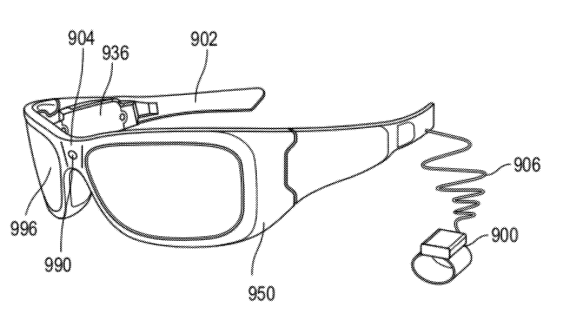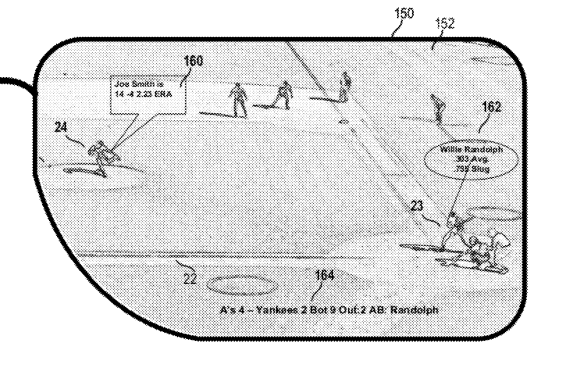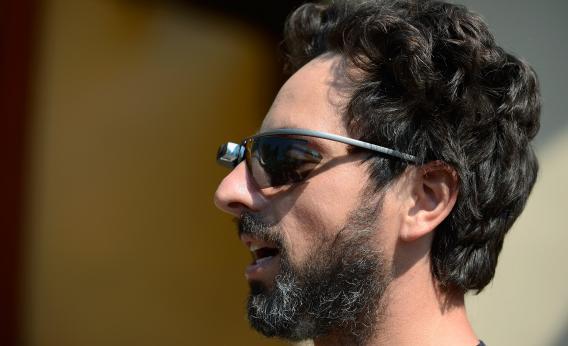Tech titans like Apple, Google, and Microsoft have spent years slugging it out for smartphone supremacy. But after six iPhones, countless Androids, and a smattering of Blackberries and Windows Phones, consumer-tech geeks can finally look forward to a fresh battleground for the world’s leading mobile hardware and software makers: the realm of augmented reality.
The Guardian reports that Microsoft has obtained a patent for augmented-reality glasses that would display real-time information about live events as they unfold before your eyes. Here’s how Microsoft described the invention in its May 2011 filing with the U.S. Patent and Trademark Office:
A user wearing an at least partially see-through, head mounted display views the live event while simultaneously receiving information on objects, including people, within the user’s field of view, while wearing the head mounted display. The information is presented in a position in the head mounted display which does not interfere with the user’s enjoyment of the live event.
Microsoft declined to talk to me about the patent, saying only, “Microsoft regularly applies for and receives patents as part of its business practice. Not all patents applied for or received will be incorporated into a Microsoft product.” No doubt that’s true. And perhaps this is more properly viewed in the context of the patent wars than as an actual future product. But if nothing else, the patent makes it clear that the company has been thinking along similar lines as Google’s Project Glass, the augmented-reality eyewear that Time named one of the best inventions of 2012. (Apple, too, has begun to venture into this arena with patents for an immersive wearable display and augmented-reality maps.)
Google’s glasses—actually more of a headband with a little screen attached, since there are no lenses, the New York Times’ David Pogue notes—seem to be aiming for the full range of smartphone functionality, at least at this early stage. Microsoft’s patent, meanwhile, repeatedly emphasizes “live events,” suggesting that Redmond may be focusing on what it sees as perhaps the one killer app for wearable technology. I explained last month how Twitter sees its future as a “second screen” for events on TV. A device like the one Microsoft describes could serve as a sort of second screen for events that you witness in person.
Will the masses embrace the switch from keeping their mobile technology in their pockets to wearing it on their heads? Time will tell. For now, it’s clear the industry’s biggest players consider it a real enough possibility that they don’t want to be left out.
UPDATE: Here are two illustrations from the patent application that give an idea of what Microsoft has in mind. The first shows the glasses, while the second shows where real-time information might pop up on the lenses as you’re watching a baseball game.

Microsoft drawing courtesy of U.S. Patent and Trademark Office

Microsoft drawing courtesy of U.S. Patent and Trademark Office
